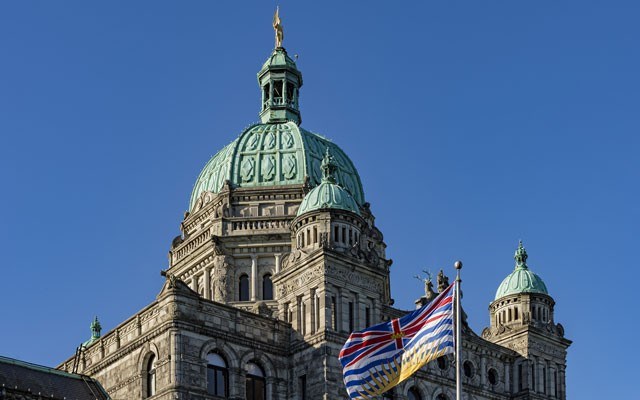The votes are counted and the province will spend the next four years under the rule of the... well, it's still not entirely clear.
The election was predicted to be a nail-biter, and it certainly was, and as Pique went to press there were still too many unknowns (recounts, mail-in ballots— 51,000 in 2013 — district office voting numbers and more) to call what the leadership of the province will look like.
One unassailable fact, though, is the success the B.C. Green Party has achieved in this election. In Sea to Sky country, Green candidate Dana Taylor surpassed the NDP candidate, taking 28.7 per cent of the vote. Incumbent Liberal Jordan Sturdy took the win with 42.95 per cent of the vote.
At print deadline, the Green Party had won three seats — more than ever before and, in fact, more seats than Greens have won in any elections in Canada. It could be that Green Party leader Andrew Weaver and his two elected colleagues will be power brokers over the next four years.
And we know two issues the Greens were firm on addressing are getting rid of union and corporate donations, and electoral reform. (The B.C. Green Party, with three seats, still does not have official party status in the legislature — four seats are needed for that.)
This was the election that took the Greens in B.C. from obscurity to legitimacy. And I would argue that having environmentalist David Suzuki, a trusted voice in Canada, endorse the Green Party moved the vote dial significantly.More and more the electorate is considering that voting Green is not just voting for climate-change issues, it is voting for a party that has a full platform on education, social issues, the economy and more.
Green parties exist in nearly 90 countries around the world and in several have had lead roles in government including Germany, Sweden and Finland to name a few. It looks like B.C. could be joining this worldwide movement in a more meaningful way.
Let's hope, however, that the B.C. Greens do not allow their "kingmaker" status to warp their focus as has been seen elsewhere.
In Sweden, where the Greens are part of a coalition government with the Social Democrats, they promised not to sell coal mines to foreign owners but that is exactly what happened after political manoeuvring. GMO's were also given the thumbs up and there has been record spending on the military in absolute terms.
What the results of this election tell all of us is that British Columbians are looking for leaders who listen to their concerns — concerns that cannot be addressed by just one way of doing things. It's time to take the best and brightest ideas from across the political spectrum and put them to work for B.C. To find success the leaders of our political parties must also listen to each other.
As Whistler settles in for the next four years there are several issues near the top of the list that political stakeholders need to address.
For years, the long-term fate of the Resort Municipality Initiative (RMI) funds, for example, have been hanging in the balance — this despite the fact that Whistler returns the investment it gets ($6.7 million annually) in the first 14 days of each year to all levels of government.
The Liberal government has previously said that the RMI funding will stay in place for the resorts (Fernie, Golden, Harrison Hot Springs, Invermere, Kimberley, Osoyoos, Radium Hot Springs, Revelstoke, Rossland, Sun Peaks, Tofino, Ucluelet, Valemount and Whistler) until this December.
But it's not enough anymore to keep getting the funds, the resorts need more say in how the investment is used.
At the all-candidates meeting in Whistler on April 25 Sturdy said: "There should be more latitude, there should be a community conversation about... what are the best outcomes for those funds, how do we want to use them.
"And let's just get it amended so we use it the way we want it, and the way we think that it makes sense for this community."
Whistler will be looking for follow through on this.
The corridor also wants a transit option put in place as was discussed by Sturdy and others in the lead-up to the May 9 election.
Not only would this help with the movement of workers in the corridor it could be an option for visitors and also those looking for various levels of community and government support.
Regional growth — something tied directly to transportation on the highway and even housing — is also high on the agenda for Whistler. With the former B.C. Liberal government supporting Whistler Blackcomb's Master Development Plan, and, so far, the Garibaldi at Squamish development regional growth and all the challenges it brings with it are just around the corner.
There are myriad issues that Sea to Sky residents have voiced concerns about, not least of which is the Woodfibre LNG plant. The Liberals are full steam ahead on this, but many people locally oppose it and I would urge Mr. Sturdy to heed these voices and carry them to Victoria.
And, please, end the grizzly bear trophy hunt. It is simply morally wrong to hunt these animals in this day and age — despite the Liberals' position that the species can withstand being "harvested."




